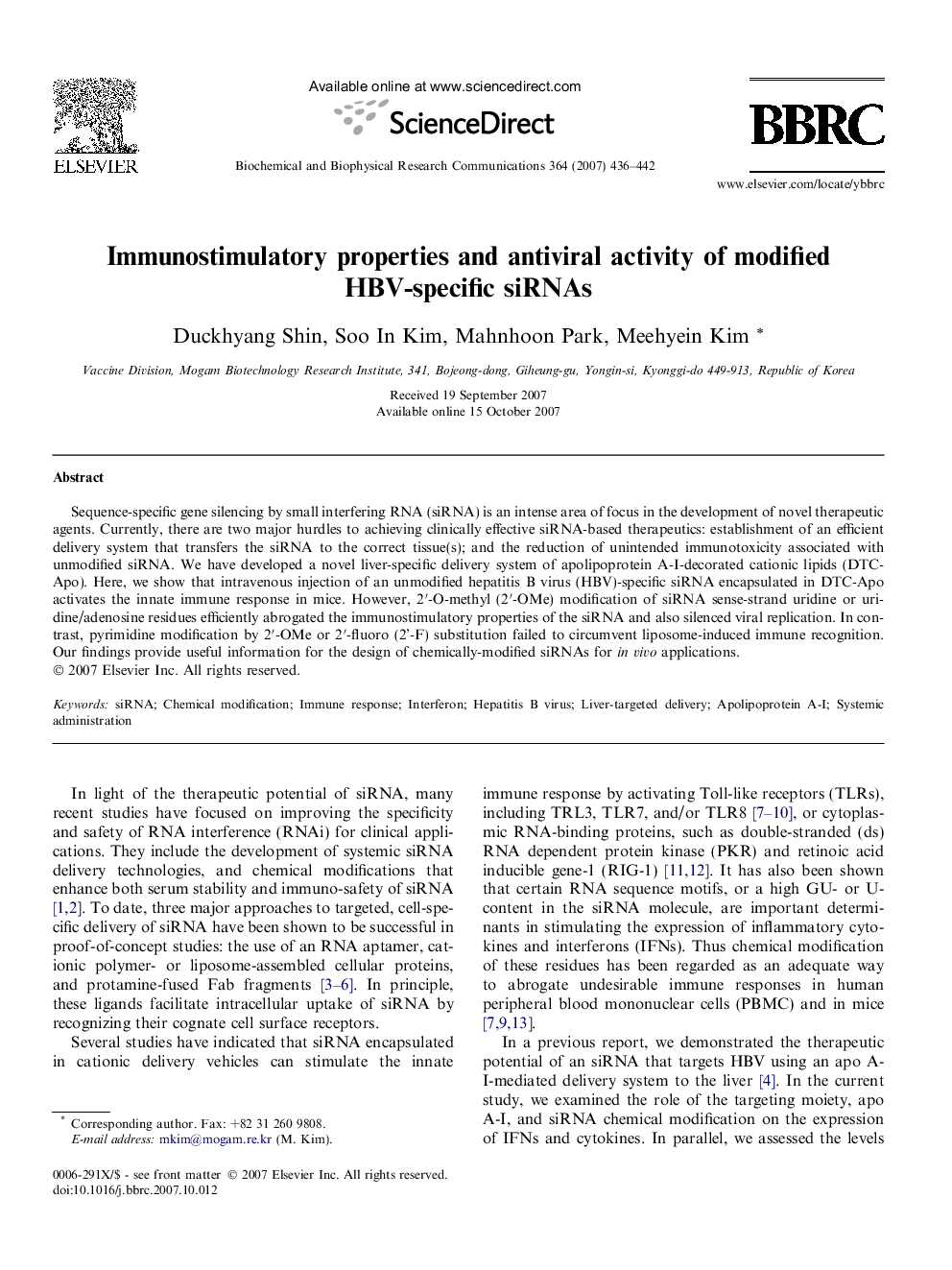| Article ID | Journal | Published Year | Pages | File Type |
|---|---|---|---|---|
| 10766929 | Biochemical and Biophysical Research Communications | 2007 | 7 Pages |
Abstract
Sequence-specific gene silencing by small interfering RNA (siRNA) is an intense area of focus in the development of novel therapeutic agents. Currently, there are two major hurdles to achieving clinically effective siRNA-based therapeutics: establishment of an efficient delivery system that transfers the siRNA to the correct tissue(s); and the reduction of unintended immunotoxicity associated with unmodified siRNA. We have developed a novel liver-specific delivery system of apolipoprotein A-I-decorated cationic lipids (DTC-Apo). Here, we show that intravenous injection of an unmodified hepatitis B virus (HBV)-specific siRNA encapsulated in DTC-Apo activates the innate immune response in mice. However, 2â²-O-methyl (2â²-OMe) modification of siRNA sense-strand uridine or uridine/adenosine residues efficiently abrogated the immunostimulatory properties of the siRNA and also silenced viral replication. In contrast, pyrimidine modification by 2â²-OMe or 2â²-fluoro (2'-F) substitution failed to circumvent liposome-induced immune recognition. Our findings provide useful information for the design of chemically-modified siRNAs for in vivo applications.
Keywords
Related Topics
Life Sciences
Biochemistry, Genetics and Molecular Biology
Biochemistry
Authors
Duckhyang Shin, Soo In Kim, Mahnhoon Park, Meehyein Kim,
